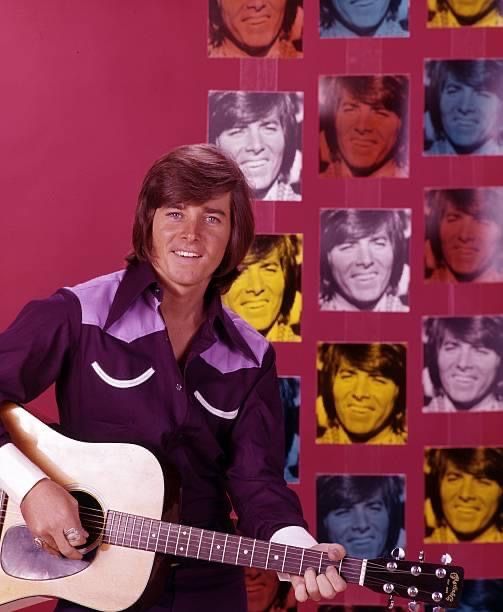
A Timeless Lament of Lost Love and Winter’s Chill
There are certain melodies that, with the first few notes, transport you back to a specific time and place. For many of us who came of age in the late 1960s and early 1970s, Bobby Sherman‘s “Cold Girl” is undoubtedly one of those. It’s more than just a song; it’s a poignant snapshot of youthful heartache, a familiar ache that resonates even decades later. Released in 1969 on his album “Here Come Bobby”, “Cold Girl” quickly captivated audiences, climbing to a respectable number 33 on the Billboard Hot 100 chart. While not his biggest hit – that honor often goes to tracks like “Little Woman” or “Easy Come, Easy Go” – “Cold Girl” held a special, understated power, quietly weaving its way into the fabric of pop music and the memories of a generation.
The story behind “Cold Girl” is, like many of the era’s romantic ballads, one of unrequited affection and the bittersweet sting of rejection. In an age before instant digital connections, relationships often unfolded with a slower, more tender rhythm, making the pain of a love that wasn’t reciprocated all the more acute. The song paints a vivid picture of a young man grappling with the emotional distance of the girl he adores. She is, as the title suggests, “cold” – not necessarily cruel, but seemingly impervious to his affections, her heart a frozen landscape he cannot penetrate. This evokes a universal experience: the desire to connect deeply with someone who remains elusive, leaving you stranded in a solitary winter of emotion.
The genius of “Cold Girl” lies in its lyrical simplicity and evocative imagery. The lyrics speak of a love that feels like an uphill battle against an unyielding force, a constant struggle to thaw a heart that seems determined to remain encased in ice. The “coldness” can be interpreted in various ways: perhaps she’s emotionally unavailable, perhaps she’s simply not interested, or perhaps she’s guarding herself due to past hurts. This ambiguity allows listeners to project their own experiences onto the narrative, making the song deeply personal for countless individuals who have faced similar romantic impasses. The wintery metaphors – the “cold girl,” the “frost” around her heart – serve to amplify the feeling of isolation and the seemingly insurmountable barrier between the singer and his beloved. It’s a testament to the song’s enduring appeal that these themes remain relevant today; who among us hasn’t felt the chill of an unreturned gaze or the frustration of a love that simply cannot bloom?
For those of us who grew up with Bobby Sherman on our transistor radios and television screens, “Cold Girl” evokes a distinct sense of nostalgia. He was the quintessential teen idol of his time – charming, wholesome, and possessing a voice that was both earnest and vulnerable. His music often mirrored the burgeoning emotions of adolescence, touching upon first loves, heartbreaks, and the simple joys of youth. “Cold Girl” stands out as a particularly melancholic entry in his repertoire, showcasing a more introspective side to the usually upbeat singer. It’s the kind of song you’d listen to alone in your room, perhaps with the lights low, contemplating your own romantic woes. It wasn’t about the grand gestures, but the quiet ache of a love that just wasn’t meant to be, a feeling many of us can recall with vivid clarity from our own formative years. The gentle instrumentation, typical of the era, further enhances the song’s reflective mood, with the melodic arrangements providing a soft bed for Sherman’s heartfelt vocals.
Beyond its chart performance and biographical details, “Cold Girl” is a song that speaks to the timeless human experience of yearning. It’s a reminder that even in the brightest of times, there can be a quiet corner of our hearts that holds onto the memory of a love that remained just out of reach. It’s a song that invites us to reflect on those moments of youthful vulnerability, the times we put our hearts on the line only to be met with a silent, unspoken resistance. And in that shared experience, there’s a comforting universality that ensures “Cold Girl” remains a cherished, if bittersweet, part of the soundtrack of our lives. It’s not just a relic of the past; it’s a mirror reflecting emotions that are, and always will be, deeply human.